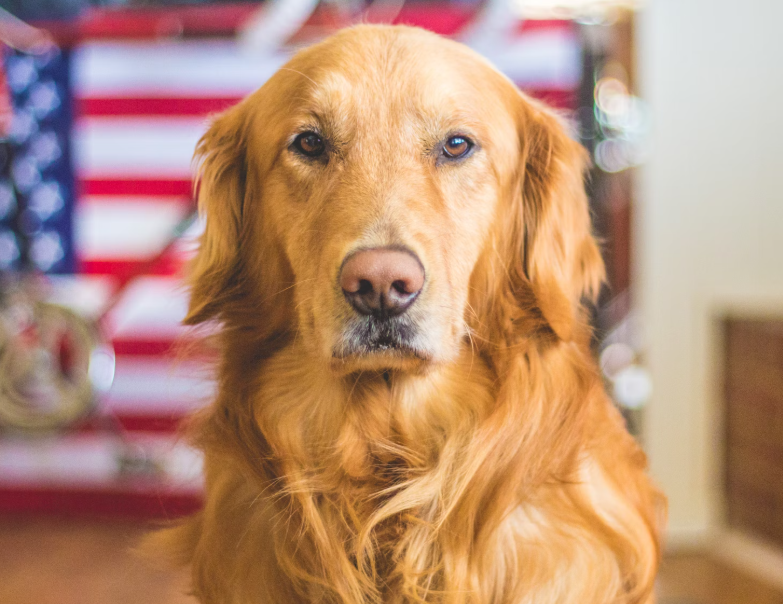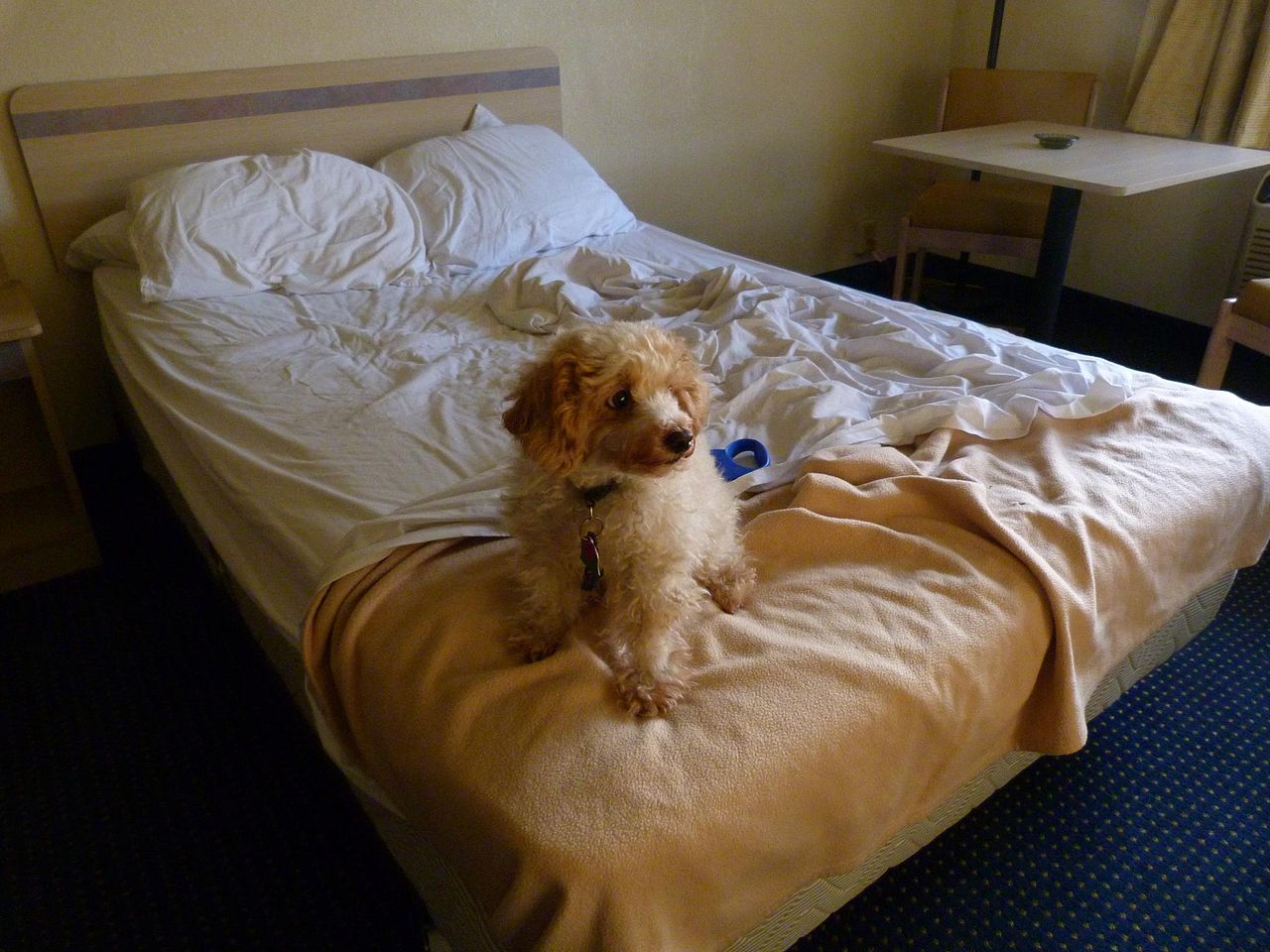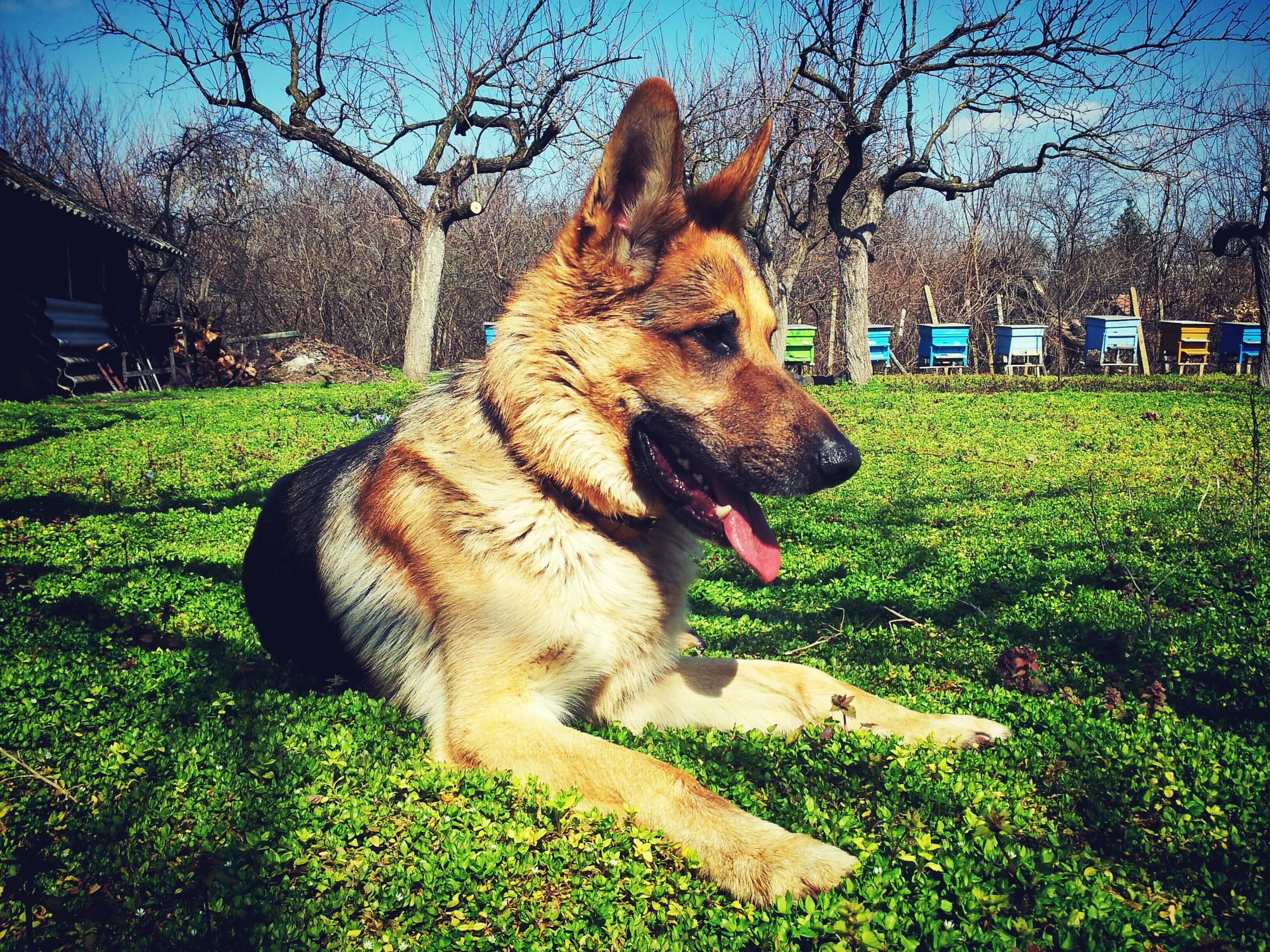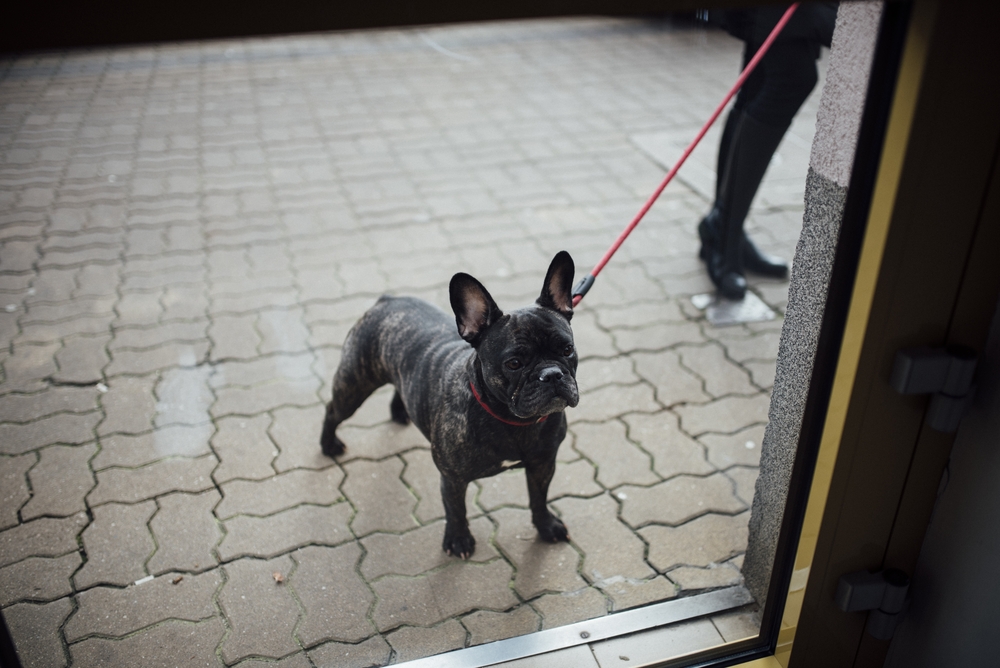- Key Takeaways
- Traveling with Pets/ESAs on Iberia— General Rules
- Traveling with Pets in the Cabin
- Traveling with Pets in the Hold
- Transporting Pets as Cargo
- Legal Requirements and Documentation
- Traveling With Assistance Dogs
- How to Request Travel with an Assistance Dog?
- General Guidelines On Traveling With Assistance Dogs
- Accreditation
- Documents
- Where Can Assistance Dogs Sit On the Plane?
- Dog's Behavior on the Plane
- Reasons for Denied Boarding
- Flying with Assistance Dogs to/from the US— General Rules
- Documents Required for Traveling with Assistance Dogs to/from the US
- Train Your Dog as a Service/Assistance Dog with Service Dog Training School International
- FAQ
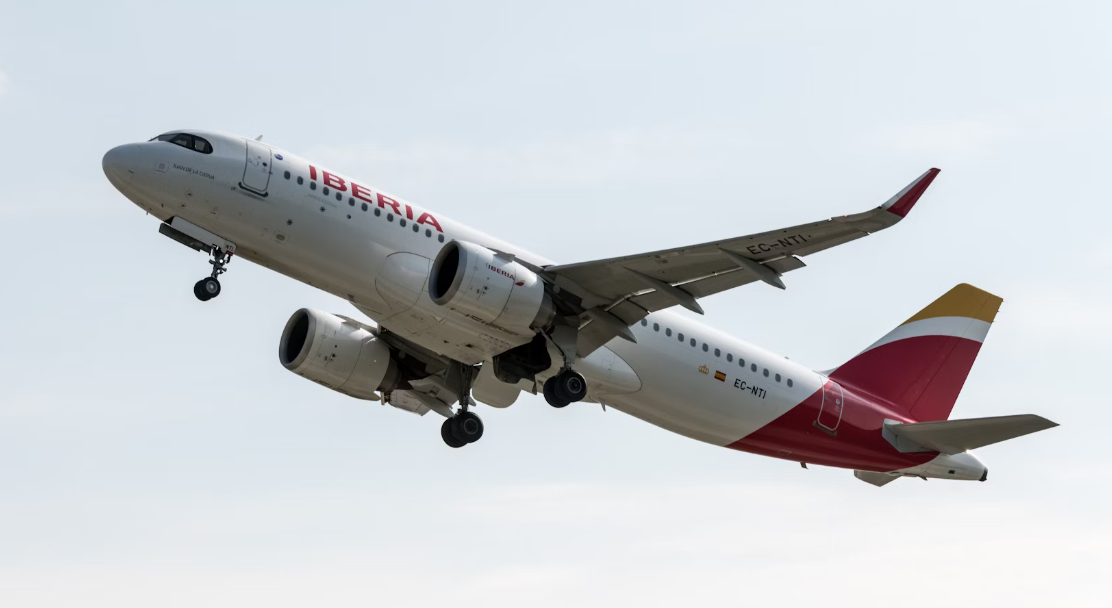
Are you ready for your next trip with your paw companion? We bet you always try to prepare yourself properly to ensure both you and your furry friend have a positive experience.
Since traveling with dogs—whether pets, ESAs, or service dogs—can turn into a challenge without proper preparation, today we’ll help you navigate the regulations of another major airline!
Iberia Airlines, like many other carriers, has specific rules in place regarding the transport of pets and service dogs, which are designed to ensure a safe and comfortable flight for passengers and crew. Understanding these guidelines is an essential part of the travel preparation process.
In today’s article, we will outline Iberia's policies, including the required documentation, the boarding procedures, and additional considerations to make your flight experience as smooth as possible.

Key Takeaways
Does Iberia Accept Emotional Support Animals (ESAs)?
Iberia does not permit emotional support dogs or therapy dogs in the cabin free of charge, as they are not considered assistance dogs. However, these animals can still be accommodated as pets, subject to the airline’s pet policy.
Does Iberia Accept Assistance Dogs?
Yes, Iberia accepts assistance dogs in the passenger cabin as long as they meet the airline’s criteria.
Since Iberia is a Spanish airline, for the purposes of this article, we will use the term 'assistance dogs' instead of 'service dogs.' While these terms are interchangeable, 'assistance dogs' is primarily used in Europe, while 'service dogs' is more commonly used in North America.
Do Assistance Dogs Fly for Free?
Yes, assistance dogs, that fulfill the airline’s requirements fly free of charge.
How to Get an Assistance Dog?
An assistance dog is a dog that has been individually trained to perform specific tasks for the benefit of a person with a disability or with another assimilated medical condition. With that said, for a dog to become an assistance dog, they need to undergo specialized training. This includes basic obedience, appropriate manners in public and specific service dog tasks based on the individual’s health condition and needs.
Trained assistance dogs can be provided by for or non-profit organizations that specialize in training such dogs and pairing them with their handlers. In many cases, though, dog owners decide to train their pet dogs or have them trained as assistance dogs.
How to Qualify for a Service Dog?
To qualify for a service dog, an individual must be diagnosed with a disability, whether physical and/or mental, that limits life activities.
How to Get Started?
If you already have a dog, you can get started by taking our simple online training assessment to see if you qualify, and enroll in the Service Dog Training Course based on your needs.
Traveling with Pets/ESAs on Iberia— General Rules
Let’s start with the important clarification that requests for traveling with pets/ESAs are subject to availability. Passengers who intend to bring their pets, are required to contact the airline’s booking offices.
The airline advises passengers to review the regulations, and any documentation that must be submitted for their pets.
Furthermore, pet owners need to familiarize themselves with the section on the airline’s website dedicated to the exceptional cases. These are related to restrictions on the transportation of certain animals and the import regulations based on the destination.

Traveling with Pets in the Cabin
Passengers traveling with small pets such as dogs, cats, fish, tortoises, and birds (excluding birds of prey) can bring them into the cabin, provided they obtain prior approval through the airline’s booking offices.
Pets are permitted in the cabin as long as certain conditions are met. At check-in, travelers must present proof that these requirements have been fulfilled, which will enable the agent to complete an official IATA form. This abbreviation stands for the International Air Transport Association. Pets flying on Iberia must meet the following requirements to be accepted in the cabin.
Weight & Crate Requirements
Weight Limit
The pet and their container must not exceed a combined weight of 8 kg.
Container Size
The carrier must measure no more than 45 cm in length, 35 cm in width, and 25 cm in height, with the total dimensions not exceeding 105 cm.
Container Standards
The crate should be durable, well-ventilated (at least 16% of its surface area must allow airflow), and have a leak-proof, secure base.
Bird Transport
Birds must travel in a secure, locked cage with spill-proof food and water containers. The cage should remain covered at all times during the flight.
Multiple Pets
Two small animals of the same species may share one container, provided the total weight stays within the allowable limit.
Passenger Responsibility
It is the passenger’s responsibility to ensure that their pet does not disturb others and remains inside the carrier throughout the flight.
Restrictions
The airline does not accept animals that may cause discomfort to passengers or crew, such as those with strong odors or other disruptive traits. Additionally, pets are not allowed to occupy seats near emergency exits for safety reasons.
Cabin Pet Transport Fees (One-Way)
- Within Spain (excluding Canary Islands): €40 / $50 / £35
- Canary Islands, Europe, North Africa, and the Middle East: €60 / $73 / £55
- America and Asia: €180 / $210 / £165
The airline clarifies on their website that all fees must be paid at the airport.
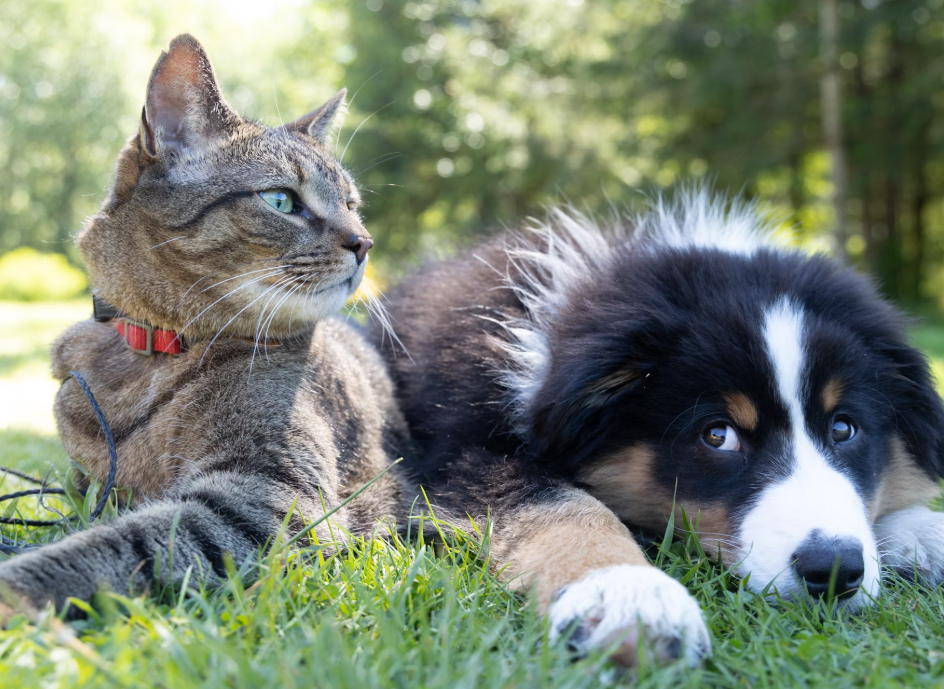
Traveling with Pets in the Hold
Iberia allows dogs and cats to travel in the hold, except for brachycephalic (short-nosed) breeds and certain breeds considered dangerous. This service is available on Iberia, Iberia Express, and Iberia Regional Air Nostrum flights, provided the necessary conditions are met.
The airline specifies that brachycephalic breeds can travel in the cabin if they comply with the airline's pet travel policy. The following dog and cat breeds are considered brachycephalic:
Dogs:
Affenpinscher, Boston Terrier, Boxer (all breeds), Brussels Griffon, Bulldog (all breeds), Bull Mastiff, Canary Prey dog, Cane corso, Cavalier Spaniel, Chihuahua, Chow Chow, Dogue de Bordeaux, English Toy Spaniel, Japanese Chin, Japanese Spaniel, King Charles Spaniel, Lhasa Apso, Maltese, Mastiff, Miniature Pinscher, Pekingese, Pit Bull, Pug, Saint Bernard, Shar Pei, Shih Tzu, Tibetan Spaniel, Yorkshire Terrier.
Cats:
Burmese, Exotic Shorthair, Himalayan, Persian.
Crate & Weight Requirements
To ensure the pet’s safety and comfort during the flight, the crate must meet international standards as follows:
- Material and Security
The crate must be made of durable material and have a secure locking system to prevent it from opening.
- Space and Comfort
It should allow the pet to stand naturally, turn around, and lie down comfortably.
- Ventilation and Safety
The crate must be free from damage that could harm the animal and should have adequate ventilation.
- Base Specifications
The bottom of the crate must be waterproof and include cushioning or insulation to protect the pet from direct contact with the aircraft floor.
- Multiple Animals in One Crate
The airline permits two adult pets in a crate provided they are accustomed to living together, and each weighs up to 14 kg. Alternatively, three animals under six months old from the same litter may travel in a single crate.
- Weight
Based on Iberia’s policy, the total weight (pet + crate) must not exceed 45 kg. For weights above this limit, pets can be transported via WOOF Airlines. They help with the transportation of large dog breeds, involving those that exceed 32kg individually or 45kg when the kennel is also included.
Additional Guidelines
- Connecting Flights
Passengers whose journeys involve a connection, must have a layover between 90 minutes and 4 hours; otherwise, pet transport is not allowed.
- Advance Booking
Reservations must be made at least 48 hours before departure, and pet owners must specify the breed of their dog or cat. It’s important to note that permission is granted only after all flights in the itinerary have been confirmed.
Restricted Destinations
Pets are not permitted in the hold on flights to or from Boston (BOS).
Charges for Pet Transport in the Hold (One-Way)
Charges vary depending on the destination and are payable at the airport:
- Within Spain (excluding Canary Islands): €100 / $120 / £90
- Canary Islands, Europe, North Africa, and the Middle East: €145 / $170 / £130
- America and Asia: €360 / $435 / £330
(Flights operated by Iberia Express within Spain are subject to the €145 / $170 / £130 rate.)
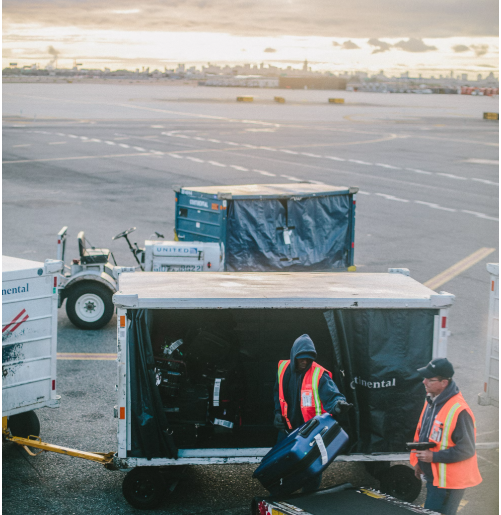
Transporting Pets as Cargo
Pets that can’t travel with their owners in the cabin or hold may need to be transported as cargo under certain circumstances.
Pets will be transported as cargo if:
-
The total weight of the pet and carrier exceeds the 45 kg limit.
-
There are legal entry restrictions in the destination country, or pets are only accepted as cargo.
-
The pet's breed is subject to transport restrictions (e.g., dangerous or brachycephalic breeds).
-
The pet is not part of the species typically accepted for travel.
-
The pet needs to travel separately from their owner.
In any of these cases, pet owners should contact WOOF Airlines for assistance and to arrange the appropriate transport.
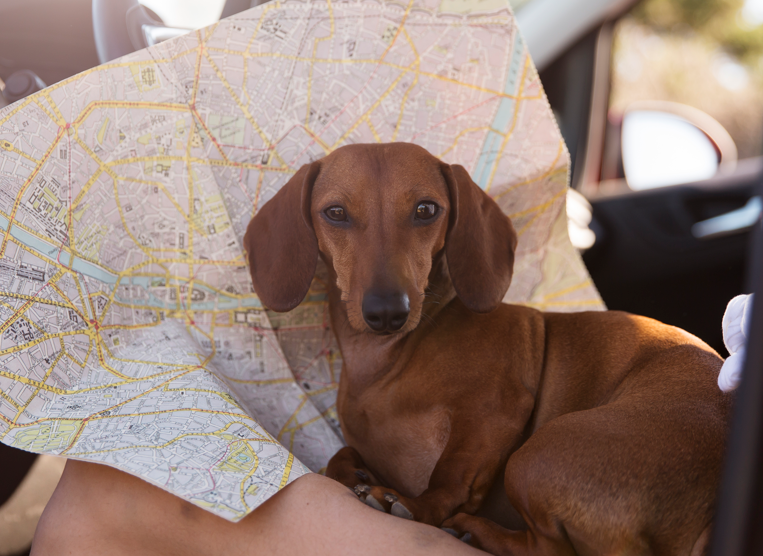
Legal Requirements and Documentation
Pets can travel with their owners as long as all legal requirements are met, and the necessary documentation is provided.
Domestic Travel Within Spain
For travel within Spain, a special veterinary ID is not required. Owners simply need to have the pet's official health card on hand.
The primary vaccine requirement in Spain is the rabies vaccine, which is mandatory in some regions and voluntary in others. If your pet has not received the rabies vaccine due to its non-mandatory status in your area, we advise you to consult with a veterinarian to determine whether vaccination is necessary for travel to your destination.
Travel Between EU Members (Except for Finland and Malta)
When traveling between EU countries, pets must have a veterinary passport that includes the following details:
-Identification via an electronic microchip or a readable tattoo.
-An up-to-date rabies vaccination.
For pets under three months old, travel requires authorization from the health authorities of the EU member states. The pet must have a passport and documentation as proof that it has stayed in its place of birth without contact with wild animals. Additionally, the animal must travel with its mother if it has not been weaned yet.
Travel to Finland, Malta, and the United Kingdom
Pets traveling to Finland, Malta, or the United Kingdom must comply with the general EU travel rules as well as additional country-specific requirements.
If traveling from a country other than Finland, Malta, or the UK, pet owners must provide proof that their dogs have undergone treatment for tapeworm, administered no more than 120 hours (five days) and no less than 24 hours prior to arrival.
Iberia is not currently authorized to transport animals to the UK, so pets cannot be accepted for travel to this destination.
The airline advises passengers traveling with their pets to/from the UK, to contact WOOF Airlines for assistance in arranging transport with Iberia.
Pets (excluding ferrets) must travel with a pet passport fulfilling the same requirements as outlined above. Furthermore, owners need to provide proof of a clean rabies neutralizing antibodies test (blood test).
Iberia also recommends that passengers flying pets visit review the IATA website or the Ministry of Agriculture, Fisheries and Food of the Government of Spain.
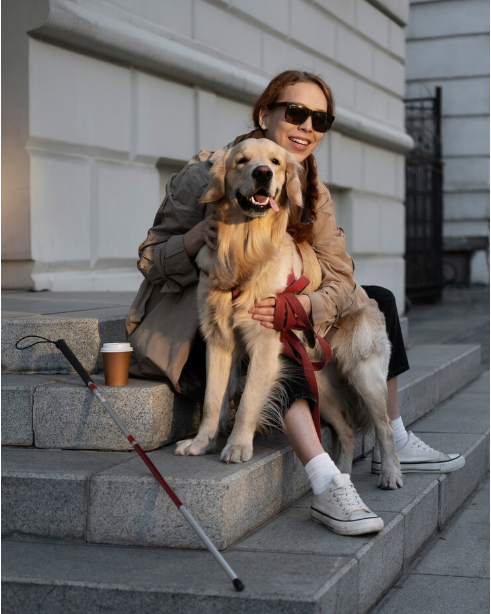
Traveling With Assistance Dogs
Assistance Dogs- Definition
If you visit the airline’s website, you will find the following definition of the term ‘assistance dog’: “An assistance dog is specially trained by an accredited center to perform tasks that aid individuals with disabilities or other medical conditions. These dogs are not only companions but are also permanently linked to the person they assist”.
Assistance Dogs Recognized by Iberia
The airline recognizes the following types of assistance dogs, provided a certificate verifying their status is presented:
-
Guide Dogs: Aid individuals who are blind or visually impaired.
-
Service Dogs: Help individuals with physical disabilities.
-
Hearing Dogs: Assist those with hearing impairments by alerting them to specific sounds and their sources.
-
Medical Response Dogs: Help individuals with conditions such as diabetes, epilepsy, or other medical issues that may cause loss of consciousness or sensory disconnection.
-
Dogs for Autism Spectrum Disorders: Provide support to individuals with autism.
-
Rescue Dogs: Fully trained to collaborate with government security forces. They accompany rescue teams, wear the necessary harnesses, and travel without taking up a seat.
-
Dogs in Training: With sufficient training to behave appropriately on board, accompanied by their trainer and holding an original certificate from the training center.
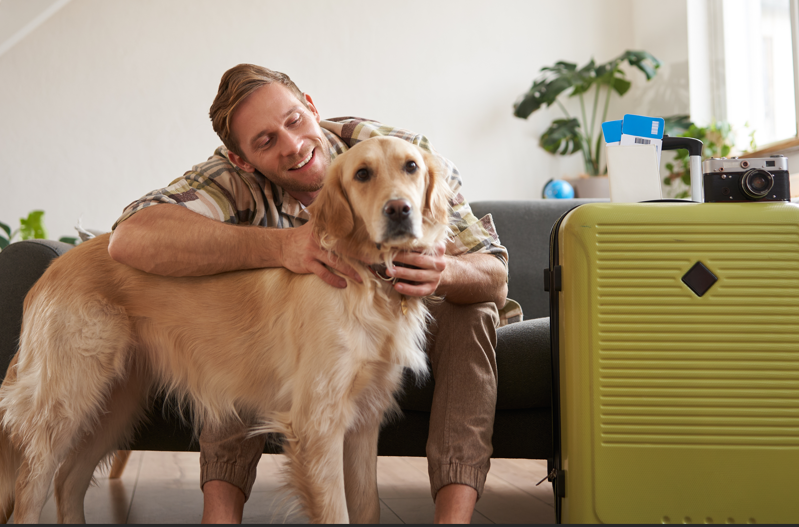
How to Request Travel with an Assistance Dog?
Passengers can request travel with their assistance dogs when purchasing their tickets or during the booking process on the website. It is highly recommended that requests are made no later than 48 hours before departure.
The following phone number is listed on the airline website for such requests: +353 01 436 0807.
General Guidelines On Traveling With Assistance Dogs
To travel with an assistance dog free of charge on any of the airline's flights, passengers must follow certain steps:
- Inform the airline at the time of ticket purchase that they will be traveling with an assistance dog. This can be done through the airline's booking offices or the website. If not informed at the time of purchase, passengers must notify the airline at least 48 hours before the flight's departure to ensure all arrangements are in place for the dog to travel.
- Provide proof that the dog is an assistance dog and that the passenger is their user.
- Comply with the requirements related to documents, health conditions, and control of the dog on board.
- Ensure that the assistance dog behaves appropriately during the flight.
If any of these requirements are not met, the transportation of the dog will be subject to the conditions established for the transport of pets.
Accreditation
- The dog's official badge and card, letter, or accreditation confirming the dog's assistance status and the name of the user, issued by the competent authority of the country or region.
- Accreditation, card, or document issued by the organization that trained the assistance dog, stating that the dog is trained and certified by a member of the International Guide Dog Federation (IGDF) or Assistance Dogs International (ADI), or the guide dog user certificate is issued by the Organización Nacional de Ciegos Españoles (ONCE).
Documents
Passengers must complete all legal procedures and submit the necessary documents, including an official health document to verify that vaccination as required by the destination country.
To travel to the United Kingdom with an assistance dog, passengers must meet the requirements of the government's Pet Travel Scheme. Additionally, contacting the animal reception center, Animal Aircare, at least 72 hours before the flight, is required. This is to allow time for processing and receiving the pre-approval required at the boarding gate.
Where Can Assistance Dogs Sit On the Plane?
Assistance dogs are required to sit at the passenger's feet without blocking the aisle or taking up space meant for other passengers. For safety reasons, passengers with assistance dogs cannot sit in rows next to the emergency exits.
As an exception, if the dog cannot travel safely at the passenger's feet due to their size or the available space on board, the airline will offer the option to change the flight.
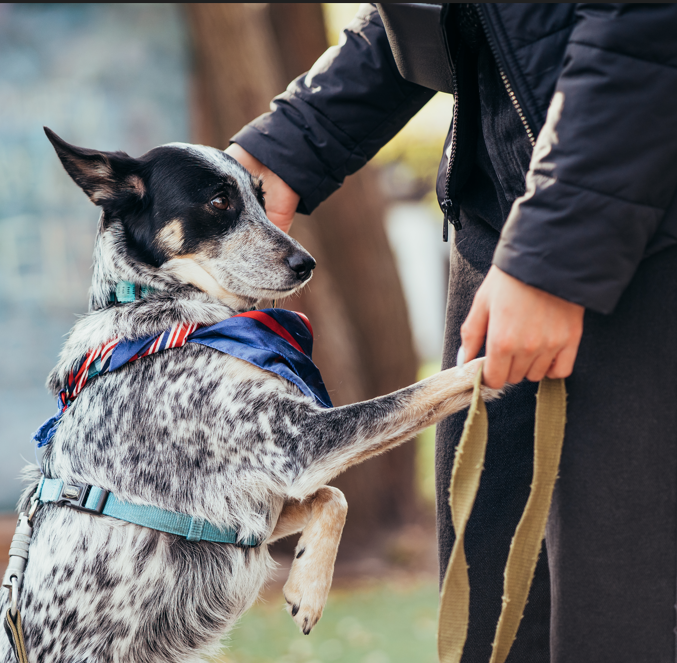
Dog's Behavior on the Plane
Assistance dogs must be kept under control at all times, secured by a leash and collar, harness, or another appropriate device.
Dogs are not allowed to roam freely around the cabin, occupy the space of other passengers, or cause any inconvenience.
If needed, passengers can request assistance from the crew to move safely through the cabin and maintain control of their dog.
Reasons for Denied Boarding
Iberia has listed the reasons that may lead to denied boarding on their website:
- Failure to present proof of the dog’s status as an assistance dog.
- The dog shows signs of poor hygiene or has external parasites, such as ticks or fleas.
- The dog exhibits aggressive behavior, such as growling, barking, or attempting to bite, which the user is unable to control.
- The dog is cannot sit quietly at the user's feet, and exhibits behavior that could jeopardize safety or cause disturbances on the plane.
Flying with Assistance Dogs to/from the US— General Rules
Flights to/from the US are subject to the regulations established by the U.S. Department of Transportation.
With that said, passengers are permitted to travel with up to two assistance dogs.
Iberia defines an assistance dog as any dog, regardless of breed or type, that has been trained to perform tasks for the benefit of an individual with a disability, including physical, sensory, psychiatric, intellectual, or other mental disabilities.
Passengers need to inform the airline at least 48 hours before departure if they are traveling with an assistance dog, unless booking last minute, through the Booking offices.
Documents Required for Traveling with Assistance Dogs to/from the US
Assistance dog handlers/users must submit a the U.S. Department of Transportation (DOT) form to attest to the dog's training and behavior on the plane. You can find a template of the form on the Iberia website as well as in our article How to Fill Up DOT Service Animal Air Transportation Form To Fly With Your Service Dog.
For flights over 8 hours, passengers must also submit a Relief Attestation form to state that their dog will not relieve themselves during the flight or do it in a sanitary manner. Passengers bear full responsibility for this matter.
This form must be downloaded, completed, and signed and then presented at the airport before boarding.
Train Your Dog as a Service/Assistance Dog with Service Dog Training School International
Why not benefit from structured, detailed, and easy-to-follow lessons? Our service dog programs are designed for individuals with little to no experience and cover a wide range of tasks. With our team’s assistance, you can not only train your dog to perform specific tasks for you, but greatly improve their manners and behavior, and strengthen your bond.
Evaluate Your Needs
To begin the process, consider completing a quick online quiz designed to assess your specific needs and determine if a service dog, would benefit you. The quiz evaluates your responses to gauge your eligibility for a service dog. Once completed, you will be prompted to select the type of training that best suits your requirements, which may include tasks related to managing various conditions, including physical and mental.
Train Your Dog as a Service/Assistance Dog
Before bringing your do to public settings, you need to ensure they are properly trained in basic/extended obedience, specific service dog tasks depending on your needs, and good manners in public.
The specific service dog could include:
-
Bringing Medication: Teaching your dog to retrieve necessary medications, ensuring they are easily accessible when needed.
-
Providing Deep Pressure Therapy (DPT): Training your dog to apply pressure to help alleviate symptoms of anxiety or panic attacks.
-
Identifying and Alerting to Medical Episodes: Recognizing and alerting you to ongoing medical episodes through changes in your scent and exhibiting specific behaviors, such as pawing, nudging, or giving a kiss.
-
Recognizing and Alerting to Anxiety: Teaching your dog to recognize your anxiety episodes through the episode itself or through the so-called ‘tells’ and show specific behavior as a response.
-
Reminding the Owner to Take Medication: Training your dog to exhibit certain behavior as a reminder for you to take medication.
Our programs are flexible, self-paced and include full tutor support. They aim to help individuals train their dogs so they can become reliable assistants in their daily lives.
Obtain Your Service Dog Certification
Once your dog has successfully completed a training program, you will receive a certificate verifying that your dog has undergone proper training and is a legitimate service dog. This documentation can be very helpful when in public or traveling with a service dog, as it confirms that your dog meets the necessary requirements to assist you in managing your disability, regardless of the situation or environment, including when traveling by air.
By following these steps, you can effectively prepare your dog for service dog work, supporting you in your daily life and ensuring a smooth travel experience.
FAQ
How many assistance dogs are permitted per passenger?
Iberia allows one assistance dog per person, unless on flights to/from the US, where up to two dogs are permitted per person.
Are pets allowed on Iberia flights to/from the UK and Ireland?
Animals are not allowed to travel in the cabin (PETC) on flights to London, or in the hold (AVIH) on flights to/from London. They are permitted to travel as cargo only.
Animals are not allowed to travel in the hold (AVIH) on flights from Dublin. They may travel as cargo.
How long before departure should passengers with assistance dogs contact the airline
Iberia requires passengers flying with assistance dogs to contact them 48 hours prior to departure.



